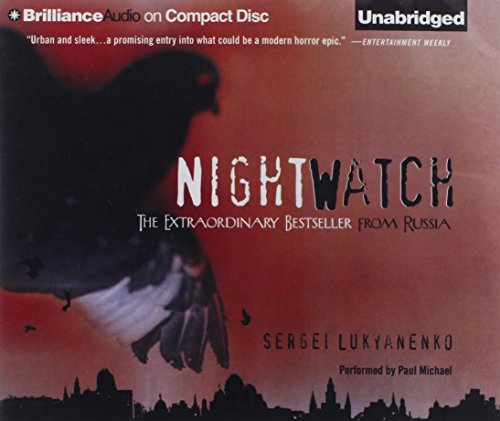


All the books present three linked novellas that set up, wander away from and return to a major thread. The Last Watch, the fourth in the series, is billed as the sequel to the Night Watch trilogy and comes with a title that flirts with - but doesn't deliver - finality. The climax of the film series - which Lukyanenko writes off in an aside here as a parallel reality - was a return to all-out war, but the books have followed other tracks, revealing that the history of communism from Stalin to Gorbachev was a side-effect of a magical experiment and turning away from the conflict between good and evil in favour of stories in which the Night and Day Watches unite to deal with rogue threats.

Initially, the conflict - as seen in Night Watch (2004) and Day Watch (2006), the films based on two-thirds of the first book - was a clash between Light and Dark, with plotlines generated by the deviousness of the faction chiefs. Prohibited from intervening too obviously in our world, they nudge new recruits into either camp, issue human-hunting licences to vampires and curb the tendencies of magicians to perform too-public miracles.Īnton Gorodetsky, the series hero, works for the Moscow branch of the Night Watch, which is charged with regulating the "Dark Others" and is opposed in a cold war face-off by the similarly bureaucratic Day Watch. In his universe, the forces of Light and Dark magic are so evenly aligned that centuries ago they made a truce to avoid a war of mutual destruction. Lukyanenko offers a distinctively post-Soviet take on the genre. Such titles include Stephenie Meyer's Twilight Saga (which has been filmed), Charlaine Harris's Sookie Stackhouse series (currently a US television show) and Laurell K Hamilton's Anita Blake books (which have derailed, weirdly, from romance to sado-porn but show no sign of flagging).Īll these take place in slightly altered versions of our own world where witches, vampires, shapeshifters, wizards and goblins live among regular humans, having complex interspecies relationships and carrying on feuds, factions and interventions in the destiny of mankind which won't culminate in a world-changing apocalypse until the stories run out. A better fit, though, might be those magic/vampire/romance series which have enormous and dedicated readerships but have not yet broken out of their core fan groups. Comparisons are made on the jacket of this book to Harry Potter, which is fair enough on the latter's home ground.

I n Russia, Sergei Lukyanenko's Night Watch series has spawned an enormous multimedia franchise.


 0 kommentar(er)
0 kommentar(er)
